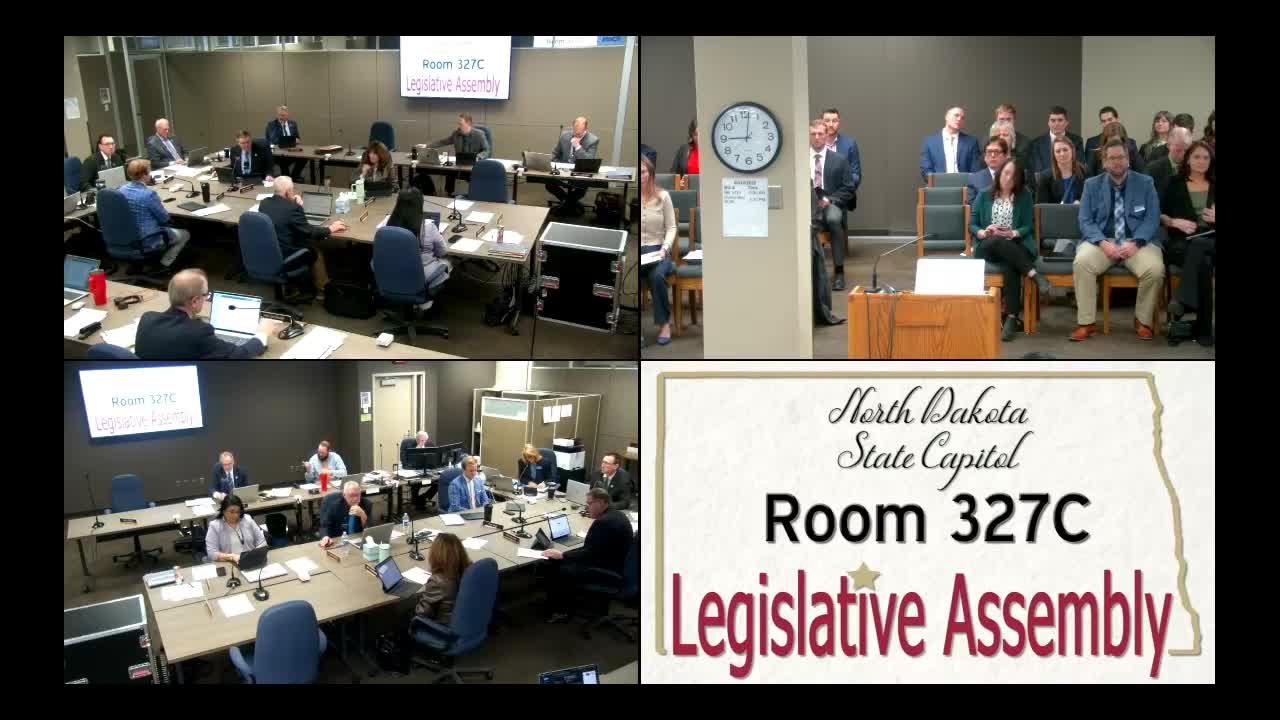Committee backs bill to make corrections employee work schedules exempt from open records
Get AI-powered insights, summaries, and transcripts
Subscribe
Summary
The House Industry, Business and Labor Committee voted to give House Bill 1415 a favorable recommendation after testimony that releasing Department of Corrections and Rehabilitation work schedules poses safety risks for staff and secure facilities.
BISMARCK — The House Industry, Business and Labor Committee voted to give House Bill 1415 a favorable recommendation after lawmakers heard testimony that public access to employee work schedules at the Department of Corrections and Rehabilitation creates safety risks.
Representative Emily O’Brien, sponsor of House Bill 1415, told the committee the measure “would add the Department of Corrections and Rehabilitation employee work schedules as exempt records.” She said the change is prompted by an incident in which a staff member shared nursing schedules with a recently released resident, and that the Department of Corrections and Rehabilitation (DOCR) is not currently treated as a law-enforcement agency for the open-records exemption that protects some schedules.
The bill’s supporters told the committee the exemption is needed for two main reasons: worker safety and facility security. Travis Singlehart, identified in the hearing as a human-resources official with the North Dakota Department of Corrections and Rehabilitation, told lawmakers that public access to schedules could allow “a bad actor” to time actions such as escape attempts or target staff involved in special investigations. Singlehart asked the committee for a “favorable due pass recommendation.”
Committee members pressed sponsors and DOCR witnesses on alternatives. Several members asked whether the department could address the issue by internal policy or administrative rule rather than statute. Witnesses said internal policy could limit sharing among employees but would not stop public requests under existing open-records law; as written today, schedules outside law-enforcement agencies are available on request, and statute, not agency policy, determines whether a record is exempt.
Lawmakers also asked for factual details about the reported incident. Committee members were told an employee used a personal cell phone inside a facility to take a photo of nursing schedules and sent it to a recently paroled person; the employee was later terminated for multiple violations. Department witnesses said they could not discipline that employee specifically for sharing the schedules because they later learned the schedules were public records under current statute.
The committee debated whether the measure could invite other agencies to seek similar exemptions. Representative Schatz and others suggested that if DOCR qualifies for protection, other departments might follow. Supporters said DOCR faces distinct security challenges because of the population it supervises.
Representative Ruby moved and Representative Casper seconded a motion to give House Bill 1415 a due pass. The committee adopted the motion. The committee selected Representative Finley DeVille to carry the bill forward.
The bill now moves to the House floor for further consideration.
